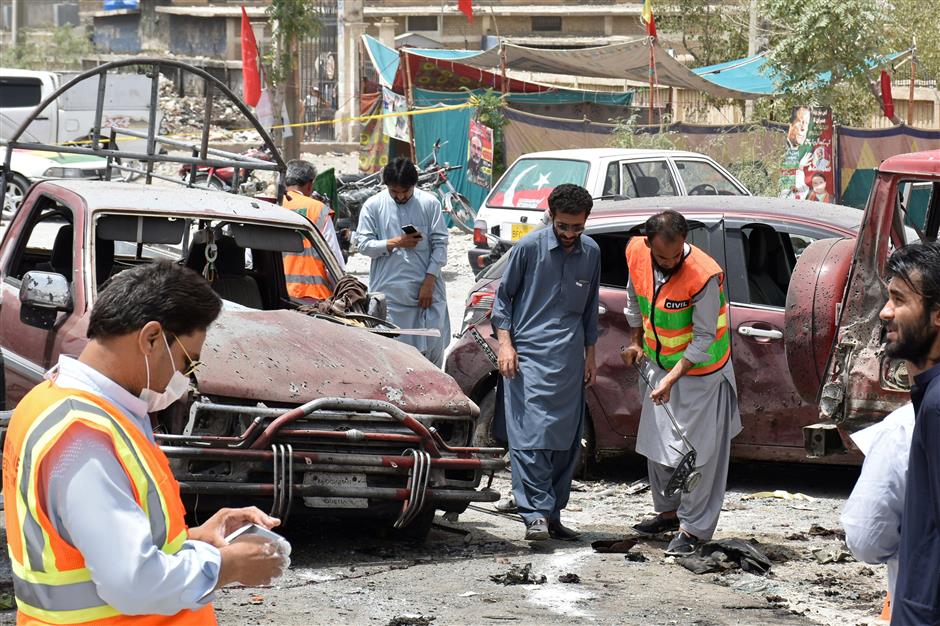Suicide bomber kills 31 as Pakistan votes

Members of the bomb disposal unit survey the site after a suicide blast, in Quetta, Pakistan July 25, 2018.
A suicide bomber killed at least 31 people and injured dozens in an attack on a polling station as Pakistanis voted on Wednesday in a knife-edge general election pitting cricket hero Imran Khan against the party of jailed ex-Prime Minister Nawaz Sharif.
The Islamic State militant group claimed responsibility for the attack in the western city of Quetta.
Local officials said the bomber was trying to enter the polling station when police intervened and the attacker detonated his explosives.
About 371,000 soldiers have been stationed at polling stations across the country, nearly five times the number deployed at the last election in 2013.
Earlier this month, a suicide bomber killed 149 people at an election rally in the town of Mastung in Baluchistan province. That attack was also claimed by Islamic State militants.
Neither Khan nor Sharif is likely to win a clear majority in the too-close-to-call election.
Khan has emerged as a slight favorite in national opinion polls, but the divisive race is likely to come down to Punjab, the country’s most populous province, where Sharif’s party has clung to its lead in recent surveys.
The election has been plagued by allegations the powerful armed forces have been trying to tilt the race in Khan’s favor after falling out with the outgoing ruling party of Sharif, who was jailed on corruption charges this month.
“Imran Khan is the only hope to change the destiny of our country. We are here to support him in his fight against corruption,” said Tufail Aziz, 31, after casting his ballot in the northwestern city of Peshawar.
Whichever party wins, it will face a mounting and urgent in-tray, from a brewing economic crisis to worsening relations with on-off ally the United States to deepening-water shortages.
An anti-corruption crusader, Khan has promised an “Islamic welfare state” and cast his populist campaign as a battle to topple a predatory political elite hindering development in the impoverished mostly-Muslim nation of 208 million people, where the illiteracy rate hovers above 40 percent.
“This is the most important election in Pakistan’s history,” Khan, 65, said after casting his vote in the capital, Islamabad.
“I ask everyone today — be a citizen, cherish this country, worry about this country, use your vote.”
Khan has staunchly denied allegations by Sharif’s Pakistan Muslim League-Nawaz party that he is getting help from the military, which has ruled Pakistan for about half of its history and still sets key security and foreign policy in the nation.
The army has also dismissed allegations of meddling.
Khan’s Pakistan Tehreek-e-Insaf party has inched ahead of PML-N in recent polls, but even if it gets the most votes, it will likely struggle to win a majority in the National Assembly, raising the prospect of weeks of haggling to form a messy coalition government.















